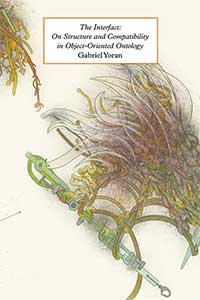Open Humanities Press is pleased to announce the publication of two new open access books:
Fabricating Publics: The Dissemination of Culture in the Post-truth Era, edited by Bill Balaskas and Carolina Rito:
http://www.openhumanitiespress.org/books/titles/fabricating-publics/
Feminist, Queer, Anticolonial Propositions for Hacking the Anthropocene: Archive, edited by Jennifer Mae Hamilton, Susan Reid, Pia van Gelder and Astrida Neimanis:
http://www.openhumanitiespress.org/books/titles/feminist-queer-anticolonial-propositions-for-hacking-the-anthropocene/
---
Fabricating Publics: The Dissemination of Culture in the Post-truth Era, edited by Bill Balaskas and Carolina Rito
Fabricating Publics explores how cultural practitioners and institutions perceive their role in the post-truth era, by repositioning their work in relation to the notion of the “public”. The book addresses the multiple challenges posed for artists, curators and cultural activists by the conditions of post-factuality: Do cultural institutions have the practical means and the ethical authority to fight against the proliferation of “alternative facts” in politics, as well as within all aspects of our lives? What narratives of dissent are cultural practitioners developing, and how do they choose to communicate them? Could new media technologies still be considered as instruments of democratizing culture, or have they been irrevocably associated with ‘empty’ populism? Do “counter-publics” exist and, if yes, how are they formed? In the end, is “truth” a notion that could be reclaimed through contemporary culture? With contributions by Charlie Gere, Christine Ross, David M. Berry, Emily Rosamond, Forensic Architecture, Gregory Sholette, Mieke Bal, Nat Muller, Ferry Biedermann, Natalie Bookchin, Alexandra Juhasz, Ramon Bloomberg, Santiago Zabala, Steven Henry Madoff, Terry Smith, and UBERMORGEN.
Fabricating Publics is published in our DATA Browser series, which is edited by Geoff Cox and Joasia Krysa:
http://www.openhumanitiespress.org/books/series/data-browser/
Editor Bios
Bill Balaskas is an artist, theorist, and educator, whose research is located at the intersection of politics, digital media, and contemporary visual culture. He is an Associate Professor and Director of Research, Business and Innovation at the School of Art and Architecture of Kingston University, London. His work has been widely exhibited in the UK and internationally. He has received awards and grants from the European Investment Bank Institute; Comité International d’Histoire de l’Art (CIHA); Open Society Foundations; European Cultural Foundation; the Australian National University; and the Association for Art History (UK), amongst others. He is Editor of the Leonardo Electronic Almanac (MIT Press), co-editor of Institution as Praxis – New Curatorial Directions for Collaborative Research (Sternberg Press, 2020), and of Architectures of Education (e-flux Architecture, 2020). Originally trained as an economist, he holds a PhD in Critical Writing in Art and Design from the Royal College of Art, London.
Carolina Rito is Professor of Creative Practice Research, at the Research Centre for Arts, Memory and Communities (CAMC), Coventry University, UK, and lead of the Critical Practices research strand. She is a researcher and curator whose work explores ‘the curatorial’ as an investigative practice, expanding practice-based research in the fields of curating, visual cultures, and cultural studies. Rito is Executive Board Member of the Midlands Higher Education & Culture Forum (MHECF); Research Fellow at the Institute of Contemporary History, Universidade NOVA Lisboa; Founding Editor of The Contemporary Journal; and Chair of the Collaborative Research Working Group for the MHECF. Rito is the co-editor of Institution as Praxis – New Curatorial Directions for Collaborative Research (Sternberg Press, 2020); Architectures of Education (e-flux Architecture, 2020); and editor of the “On Translations” and “Critical Pedagogies” issues (The Contemporary Journal, 2018–2020). From 2017 to 2019, she was Head of Public Programmes and Research at Nottingham Contemporary. She holds a PhD in Curatorial/Knowledge from Goldsmiths, University of London.
---
Feminist, Queer, Anticolonial Propositions for Hacking the Anthropocene, edited by Jennifer Mae Hamilton, Susan Reid, Pia van Gelder and Astrida Neimanis
If the Anthropocene heralds both a new age of human supremacy and an out-of-control Nature ushering in a premature apocalypse, this living book insists such assumptions must be hacked. Reperforming selections from three live events staged in 2016, 2017 and 2018 in Sydney, Australia, Hacking the Anthropocene offers a series of propositions – argument, augury, poetry, elegy, essay, image, video – that suggest alternative entry points for understanding shifting relationships between humans and nature. Scholars and artists from environmental humanities and related areas of social, political and cultural studies interrogate the assumption of the human “we” as a uniform actor, and offer a timely reminder of the entanglements of race, sexuality, gender, coloniality, class, and species in all of our earthly terraformings. Here, Anthropocene politics are both urgent and playful, and the personal is also planetary.
Feminist, Queer, Anticolonial Propositions for Hacking the Anthropocene is an OHP Labs Seedbook:
http://www.openhumanitiespress.org/labs/seedbooks/
Editor Bios
Jennifer Mae Hamilton lives on unceded Anaiwan Country, and is a researcher, teacher and community organiser. Her interdisciplinary research explores weather, affect and housework, and, with Astrida Neimanis, co-founded COMPOSTING Feminisms and Environmental Humanities. She is a lecturer in English at the University of New England.
Astrida Neimanis is Canada Research Chair in Feminist Environmental Humanities at UBC Okanagan campus on unceded Syilx territory in Kelowna, Canada. She is co-coordindator of COMPOSTING Feminisms (with Jennifer Hamilton), a member of the Weathering Collective, and director of The Feel-ed Lab. She also writes about bodies, water, and weather.
Sue Reid is a creative researcher, artist, writer and lawyer, working and living on Gadigal and Yugambeh lands. She is a member of the Sydney Environment Institute; a researcher with The Seed Box; and a PhD candidate in the Department of Gender and Cultural Studies at The University of Sydney—her thesis is titled, ‘Imagining Justice with the Ocean.’
Pia van Gelder is a researcher, historian and artist at the School of Art & Design at the Australian National University. Her work investigates historical and contemporary conceptions of energies and how these shape our relationship with technology, bodies and our environment.
 Friday, February 4, 2022 at 2:16PM
Friday, February 4, 2022 at 2:16PM 







